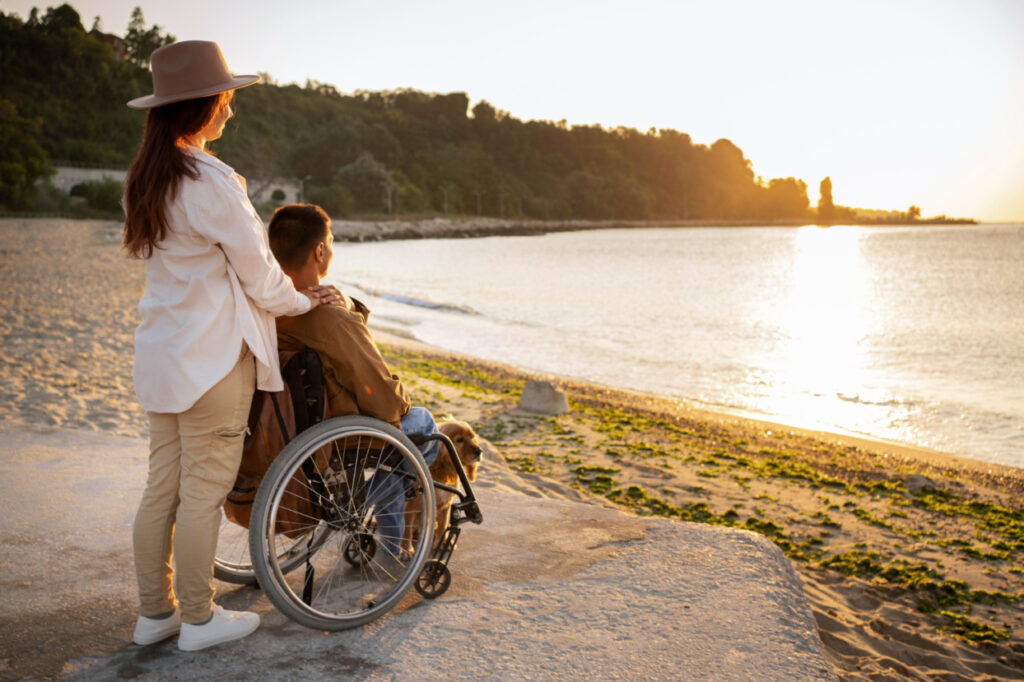When you’re setting NDIS goals, it’s important to make sure they matter. That might sound like a given, but all too often we see people set goals that don’t reflect what’s truly important to them. Maybe they’re trying to please someone else, or maybe they just don’t know how to go about setting effective goals. In this blog post, we’ll talk about how to set NDIS goals that matter – and why it’s so important.
What is a planning meeting?
Before we get into how to set NDIS goals, let’s first take a look at what a planning meeting is. Once your NDIS funding gets approved, you’ll need to attend a Planning Meeting to discuss your support needs. At the meeting, you’ll share your goals and the kind of support you’ll need to achieve them. You’ll also develop an NDIS plan, which will outline the support you’ll receive from the NDIS.
How to set NDIS goals and track progress?
Your goals might be big or small, but they should always reflect what’s important to you. An outline to creating goals is by using the SMART Goals framework. This involves making sure your goals are:
- Specific: Detailed planning of your objectives.
- Measurable: How will you know when you’ve completed them?
- Achievable: Make sure your goals are realistic.
- Relevant: They should be linked to the rest of your vision and plans.
- Time-based: Make a timetable for completing each objective.
If you set your NDIS goals following the SMART framework, you will get a clearer understanding of what to expect of yourself and what the end goal looks like for you. It’s important to track your progress when working towards them, so you can celebrate each milestone along the way. This will also help to keep you motivated and focused. You could do something as simple as ticking off boxes on a worksheet, recording your progress in a journal, or using an app to track your NDIS goals.
What do NDIS goals look like?
These goals focus on all aspects of your life starting from personal development to socialisation.
Think about what you value
- I like to engage in social activities and make new friends.
- Living by myself and gaining freedom is important to me.
- I would like to get physically fit.
Work out your goals
- Engage in community activities to meet people like myself.
- Getting guidance on living independently.
- To exercise regularly and get better.
What support do I need?
- Community Participation: help engage in social programs focused on empowering me as I aim to become socially outgoing.
- Supported Independent Living: get supervision and assistance with everyday tasks to help me live as independently as possible.
- Allied Health: consult physiotherapists and physiologists to gain better mobility and strength.
Support services for NDIS participants
So far the goal setting process looks straightforward but now you might be wondering what kind of support services are available to help you achieve your goals. There’s a whole range available for you to leverage in order to attain your NDIS goals. Three well sought after services include: Community Participation, Supported Independent Living (SIL) and Allied Health. All of them adhere to different sections of your goals such as social, personal and health.
Community Participation
This service assists people with disabilities to engage in social programs, which can help build important life skills and friendships. They often take place in a group setting and can involve activities such as sports, arts, leisure and social events. In your Planning Meeting, you can discuss activities you personally enjoy and would like to partake in with others. This way you can meet people with similar interests and foster lifelong friendships along the way.
Supported Independent Living (SIL)
SIL services provide support and a lending hand from time to time with daily tasks so you can live as independently as possible. This could involve things like cooking, cleaning, budgeting and personal care. The aim is to help NDIS participants perform activities of daily living unassisted or with minimal help. In your Planning Meeting, you can talk to your coordinator about what kind of tasks you would like help with and how frequently.
Allied Health
If you have a disability that affects your mobility, strength or coordination, Allied Health services can help. This area of support includes things like physiotherapy, occupational therapy and speech pathology. These health professionals will develop an individualised plan to help you regain movement and skills. During the Planning Meeting, you can raise any concerns about your health and well-being so your support coordinator can put you in touch with the right services.
Now that we’ve looked at what NDIS goals are and what services you can use to support you, it’s time to start thinking about what your individual goals might be. Remember to use the SMART framework when goal setting and to involve your loved ones and care team in the process. Having their support will be crucial to achieving your NDIS goals.
Contact us at OSAN
If you’re looking for services to support your NDIS Goals, please don’t hesitate to get in touch with us at OSAN Ability Assist. Our friendly staff will be more than happy to assist you and answer any questions you may have. We have some of the most talented NDIS Carers in the industry, and we’re confident that we can provide you with the support you need. Thank you for taking the time to read this post.










